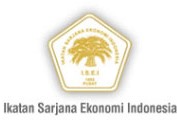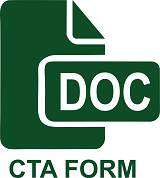The Obstacles in Developing MSMEs in The District of Jagoi Babang
(1) Tanjungpura University
(2)
Abstract
Keywords
Full Text:
PDFReferences
Abao, A. S. (2020). Cross-Border Migration in the Border Area of Jagoi Babang, Indonesia with Serikin, Sarawak, Malaysia: A Case study of Indonesian Traders at Serikin Market, Sarawak, Malaysia - Opportunities and Challenges. African Journal of Hospitality, Tourism and Leisure, 9(1), 1–7.
Budiman, J. (2018). Bidai and Takin in the Socio-Economic Perspective of the Indonesia-Malaysia Border Community [Bidai dan Takin Dalam Perspektif Sosio-Ekonomi Masyarakat Perbatasan Indonesia-Malaysia]. JSHP (Jurnal Sosial Humaniora Dan Pendidikan), 2(1), 85. https://doi.org/10.32487/jshp.v2i1.281
Džafić, Z., Zahirović, S., OkiÄić, J., & Kožarić, A. (2011). Internal and external obstacles to the development of SMEs in Bosnia and Herzegovina. Croatian Economic Survey, 13(1), 143–171.
Ehrenberger, M., Koudelkova, P., & Strielkowski, W. (2015). Factors Influencing Innovation in Small and Medium Enterprises in the Czech Republic. Periodica Polytechnica Social and Management Sciences, 23(2), 73–83. https://doi.org/10.3311/PPso.7737
Fatai, A. (2011). Small and medium scale enterprises in nigeria: the problems and prospects. Social Sciences, 1–22. https://doi.org/10.1080/03670240290014598
Ibrahim, M. I., & Mustaph, B. (2019). Determinants of Small and Medium Enterprises Performance in Nigeria: The Role of Government Support Policy. International Journal of Business and Economics Research, 8(2), 41–49. https://doi.org/10.11648/j.ijber.20190802.11
Jahanshahi, A. A., Nawaser, K., Sadeq Khaksar, S. M., & Kamalian, A. R. (2011). The Relationship Between Government Policy and the Growth of Entrepreneurship in the Micro, Small & Medium Enterprises of India. Journal of Technology Management & Innovation, 6(1), 66–76. https://doi.org/10.4067/S0718-27242011000100007
Johannes, A. W. (2019). Handling Social Problems in the Border Area District of Sanggau Regency [Penanganan Masalah-Masalah Sosial di Kecamatan Kawasan Perbatasan Kabupaten Sanggau]. Jurnal Ilmu Pemerintahan Suara Khatulistiwa, 4(2), 50–61. https://doi.org/10.33701/jipsk.v4i2.763
Karedza, G., Nyamazana, M., Mpofu, T., & Makurumidze, S. (2014). An Analysis of the Obstacles to the Success of SMEs in Chinhoyi Zimbabwe. European Journal of Business and Management, 6(6), 38–42.
Oni, E. O. (2012). Development of Small and Medium Scale Enterprises : The role of Government and other Financial Institutions. Oman Chapter of Arabian Journal of Business and Management Review, 1(7), 16–29.
Prianto, A. (2015). The Urgency of Strengthening Entrepreneurial Culture to Increase Indonesia's Competitiveness in the MEA Era [Urgensi Penguatan Budaya Wirausaha Untuk Meningkatkan Daya Saing Indonesia Di Era MEA]. Jurnal Economia, 11(1), 89. https://doi.org/10.21831/economia.v11i1.7760
Purnamasari, W., Kara, M. H., Moh Sabri, A. R., & Amiruddin, K (2016). Economic Development Development of Indonesia-Malaysia Border Area in Sambas [Perkembangan Pembangunan Ekonomi Kawasan Perbatasan Negara Indonesia Malaysia di Sambas]. Jurnal Diskursus Islam, 4(2), 217–247. https://doi.org/https://doi.org/10.24252/jdi.v4i2.7364
Rahmaniah, S. E. (2015). The Role of the Nation Development Generation (Genbi) in Empowering Border Communities Jagoi Babang Bengkayang Regency [Peran Generasi Bina Bangsa (Genbi) Dalam Memberdayakan Masyarakat Perbatasan Jagoi Babang Kab Bengkayang]. Inferensi, 7(1), 183. https://doi.org/10.18326/infsl3.v9i1.183-208
Rezaei-Moghaddam, K., & Izadi, H. (2019). Entrepreneurship in small agricultural quick-impact enterprises in Iran: development of an index, effective factors and obstacles. Journal of Global Entrepreneurship Research, 9(1), 17. https://doi.org/10.1186/s40497-018-0133-3
Sedyastuti, K. (2018). Analysis of MSME Empowerment and Increasing Competitiveness in the Global Market [Analisis Pemberdayaan UMKM dan Peningkatan Daya Saing dalam Kancah Pasar Global]. INOBIS: Jurnal Inovasi Bisnis Dan Manajemen Indonesia, 2(1), 117–127. https://doi.org/10.31842/jurnal-inobis.v2i1.65
Sherazi, S. K., Iqbal, M. Z., Asif, M., Kashif-ur-Rehman, & Shah, S. S. H. (2013). Obstacles to small and medium enterprises in Pakistan. Principal component analysis approach. Middle East Journal of Scientific Research, 13(10), 1325–1334. https://doi.org/10.5829/idosi.mejsr.2013.13.10.1186
Siburian, R. (2012). Sebatik Island: Indonesian Border Area Smells Malaysia [Pulau Sebatik: Kawasan Perbatasan Indonesia Beraroma Malaysia]. Jurnal Masyarakat & Budaya, 14(1), 53–76.
Sternad, D., Krenn, M., & Schmid, S. (2019). Business excellence for SMEs: motives, obstacles, and size-related adaptations. Total Quality Management & Business Excellence, 30(1–2), 151–168. https://doi.org/10.1080/14783363.2017.1300054
Strobel, N., & Kratzer, J. (2017). Obstacles to Innovation for SMEs: Evidence From Germany. International Journal of Innovation Management, 21(03), 1750030. https://doi.org/10.1142/S136391961750030X
Suci, Y. R. (2017). Development of MSMEs (Micro, Small and Medium Enterprises) in Indonesia [Perkembangan UMKM (Usaha Mikro Kecil Menengah) di Indonesia]. Jurnal Ilmiah Fakultasi Ekonomi, 6(1), 51–58.
Sugiyono. (2011). Qualitative Quantitative Research Methods and R&D [Metode Penelitian Kuantitatif Kualitatif dan R&D]. (14th ed.). Alfabeta.
Sulehan, J., Bakar, N. R. A., Awang, A. H., Abdullah, M. Y., & Liu, O. P. (2013). Development at the Margins: Livelihood and Sustainability of Communities at Malaysia - Indonesia Borders. Sociologija i Prostor, 51(3), 548–562.
Sutaat, S. (2012). Community Empowerment of Inter-State Border Areas; Study of Problems, Needs and Social Resources of Jagoi Village, Jagoi Babang District - Bengkayang Regency, West Kalimantan [Pemberdayaan Masyarakat Daerah Perbatasan Antar Negara; Studi Masalah, Kebutuhan dan Sumber Daya Sosial Desa Jagoi, Kecamatan Jagoi Babang - Kabupaten Bengkayang, Kalimantan Barat]. Jurnal Sosio Konsepsia, 17(1), 52–71.
Tulus, V., & Sidabutar, P. (2014). Opportunities and problems faced by export-oriented SMEs [Peluang dan permasalahan yang dihadapi umkm berorientasi ekspor]. Jakarta: Balai Besar Pendidikan dan Pelatihan Ekspor Indonesia, Dirjen Pengembangan Ekspor Nasional.
Vasilenko, L., & ArbaÄiauskas, V. (2012). Obstacles and Drivers for Sustainable Innovation Development and Implementation in Small and Medium Sized Enterprises. Environmental Research, Engineering and Management, 60(2), 58–66. https://doi.org/10.5755/j01.erem.60.2.1242
Wang, Y. (2016). What are the biggest obstacles to growth of SMEs in developing countries? – An empirical evidence from an enterprise survey. Borsa Istanbul Review, 16(3), 167–176. https://doi.org/10.1016/j.bir.2016.06.001
Yunirti, Y. (2019). Strategy for the Empowerment of Small and Medium Enterprises (MSMEs) in the Indonesia-Malaysia-Thailand (IMT-GT) Region [Strategi Pemberdayaan Usaha Kecil dan Menengah (UMKM) Di Kawasan Indonesia –Malaysia-Thailand (IMT-GT)]. Business Preneur: Jurnal Ilmu Administrasi Bisnis, 1(2), 103–110.
Refbacks
- There are currently no refbacks.

This work is licensed under a Creative Commons Attribution 4.0 International License.







